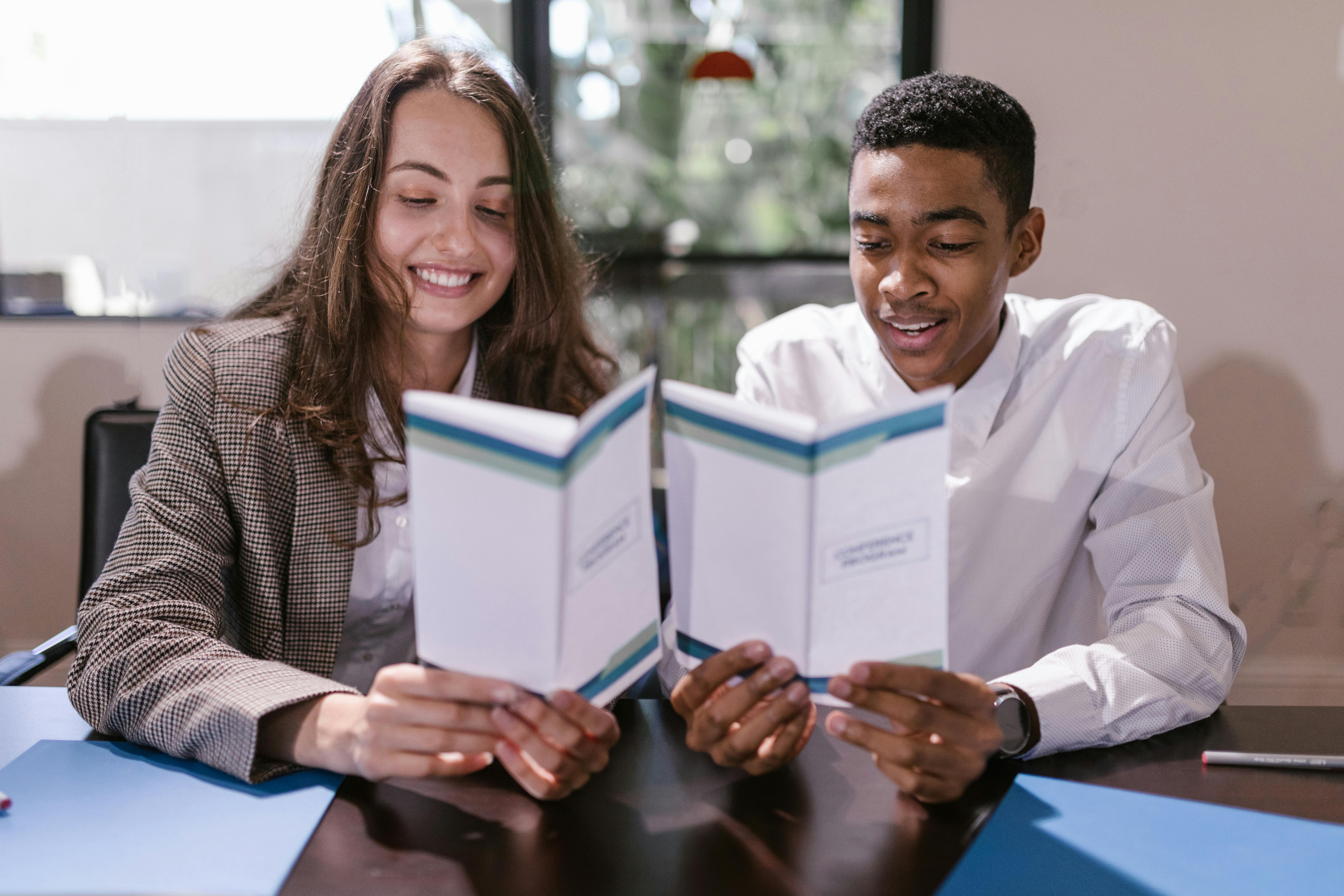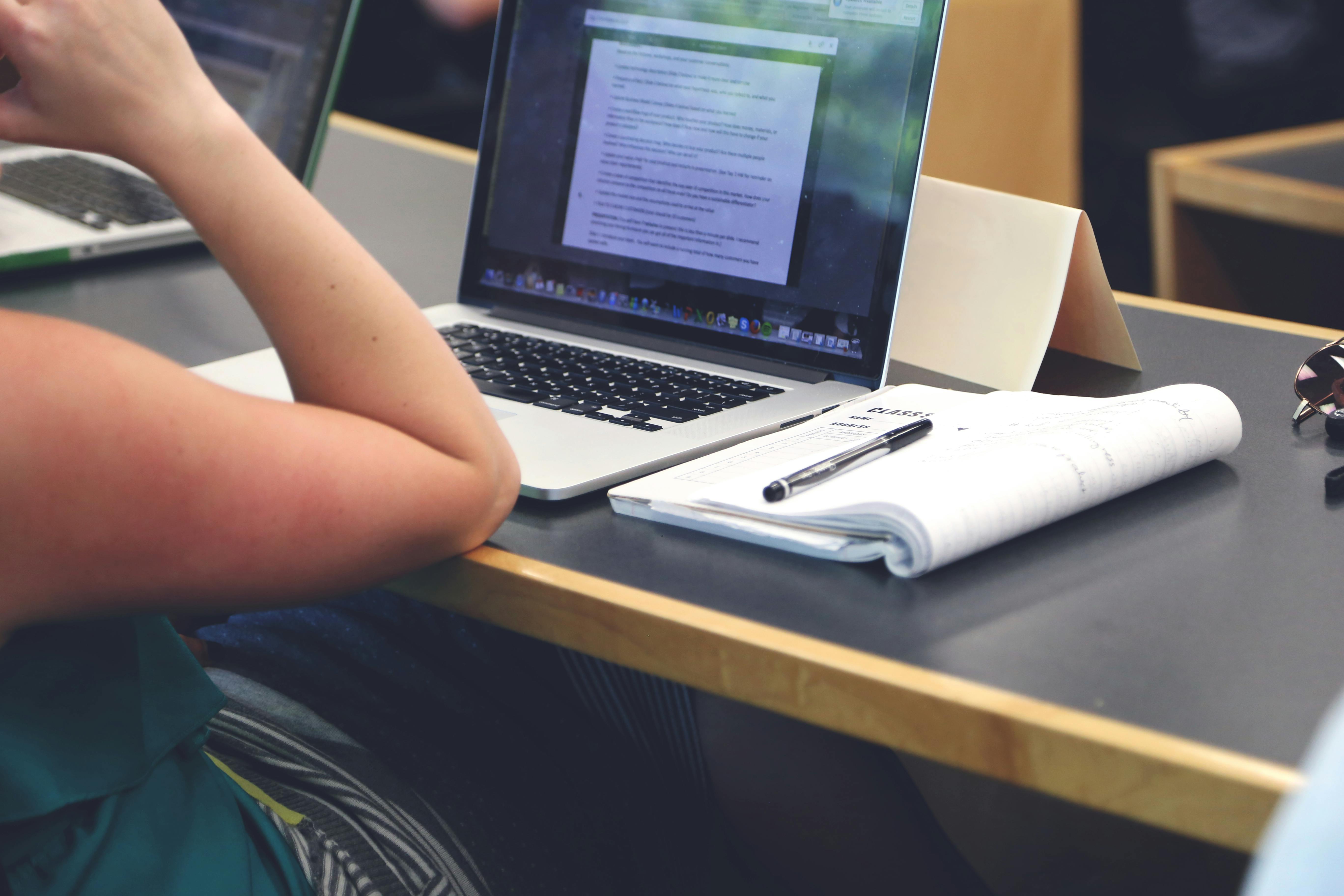Having pre-interview jitters? You’re not alone. In fact, 92% of adults in the U.S. report feeling nervous about at least one part of the interview, according to a national Harris Poll.
However, the days leading up to your first job interview don’t need to be a time of stress and anxiety. With the right preparation tactics and a solid idea of what to expect, you can confidently perform.
So take a deep breath, and read the practical first job interview tips below. When the interview rolls around, you’ll be glad you did.
Preparing for the Interview
Understanding how to prepare for the first job interview is the first step to success. For many, it’s difficult to know where to start. That’s why we’ve broken down the interview process into four central components below.
Your Knowledge of the Company and Role
Step number one is performing research on the company you’ll be interviewing with. Whether you’re interviewing with a Fortune 500 company or a small business, having an understanding of the company will help you in more ways than one.
First, you’ll have more to talk about with the interviewer if you’re informed about the company. Second, it will show that you care enough about this role to invest time researching the organization. Lastly, as you learn more about the company, you’ll gain a deeper understanding of what they are all about. This allows you to assess whether you align with the firm.
Here are a few areas of the company that are worth looking into before the interview:
- The target market and primary products/services
- Values and mission statement
- History and important leadership (know who the CEO is)
- Company culture
- Recent events (new product launches, initiatives, partnerships, etc.)
Of course, it’s not possible to know everything about the company. That’s not the point here. You simply want to gather enough information so that you come across as engaged and informed. This brings us to the next section of the interview preparation.
Your Answers
Now that you’ve looked into the company, it’s time to dive into some practice. Start with a list of common interview questions. You can also look around online for company-specific interview questions that past candidates sometimes share. Once you have a list of questions, it’s time to craft your responses.
While your answers to interview questions should be unique to you and your experiences, there are some general guidelines to follow.
1. Stay on topic
When formulating your responses, include relevant details that put you in a positive light. There’s no need to ramble on or dive into topics that don’t help the interviewer assess whether you’d be a good fit.
2. Use the STAR format
Speaking of staying on topic, the STAR format is a great framework for answering questions in your first job interview.
STAR stands for situation, task, action and result and refers to the order in which you should present a story that showcases your relevant skills. For a question that pairs perfectly with a STAR response, view number seven on this list of common interview questions.
3. Be Truthful
A CareerBuilder report found that 75% of HR managers have spotted a lie on a resume. Imagine how much more awkward getting caught in a lie during the interview would be. That would not help your chances of getting the job. So aim to be honest and accurate in each response.
If you’re worried about coming across as underqualified, scan your past involvement for relevant skills. You’ve likely picked up important skills from group projects, extracurricular activities and community involvement.
Your Appearance
Clothing is one form of nonverbal communication that speaks volumes. When preparing your ideal interview attire, aim for a neat and modest look. If you’re feeling uncertain about what to wear for your first job interview, analyzing the company culture and the industry can help you decide.
The level of formality will depend on the company. For instance, a finance firm will require a business professional look, while a creative marketing agency would call for a business casual outfit. When in doubt, it’s better to dress up rather than going too casual.
Before the interview, try on the complete outfit to make sure it fits well and that you can sit comfortably in it. Examine the outfit carefully to ensure that the fabric is free of stains, tears or anything else that would communicate a lack of attention to detail.
Your Confidence Levels
An essential step in preparing for your first job interview is practice. This is what will help calm your nerves so you can project confidence throughout the interview. But how do you practice for an interview?
Going over questions and answers in the mirror is not enough. Since you’re new to this communication format, a mock interview will give you the practice you need to put your skills to the test. To get the best out of your mock interview, you’ll want to utilize a platform that provides feedback on your performance.
Remember, learning how to prepare for tough interview questions requires multiple rounds of change to: practice. So don’t be discouraged if you have trouble. Just keep practicing and working to improve yourself for the big day of the actual interview.
5 Tips for Acing Your First Job Interview
You’ve done the research, selected a suitable outfit and gone through some mock interviews. Now, remember these five helpful tips for the first job interview.
1. Treat everyone well (not just the hiring manager)
From the secretary who greets you to the other candidates you may encounter, be kind and respectful to each person you come in contact with. This can make you memorable for all the right reasons when it comes time to decide who gets the job.
2. Have questions ready for the interview
You don’t want to end the interview on an unimpressive note. When the interviewer asks if you have any questions, pull out a list you’ve prepared ahead of time. Make sure you ask some interesting questions, not ones with answers that can easily be found online.
3. Bring a notebook and pen with you
One way to stand out and to help gather your thoughts during the interview is to take notes. This is a great way to show the interviewer that you are engaged. Plus, writing can help to calm any nervousness you may be feeling at the start.
4. Be mindful of body language
Roll your shoulders back and sit up straight during an interview. Look the interviewer in the eye to establish trust. These may seem like minor details, but nonverbal communication plays a large role in how others perceive you.
5. Thank the interviewer
Within 24 hours of the interview, send a note thanking the interviewer for their time. This can be a physical note or an email. Either way, you’ll show the interviewer that you appreciate the opportunity and look forward to joining the team.
Take the Smart Approach to Interview Preparation
We hope you enjoyed those tips for your first job interview. Read on for one more!
You only get one chance to make a lasting impression on the interviewer. Set yourself up for the best possible interview by preparing with InterviewFocus.
With innovative AI technology, InterviewFocus examines your eye contact, body language, facial expressions and more to provide detailed feedback on your strengths and weaknesses. Then, you can receive personalized coaching to improve the areas that need work.
Don’t enter your first job interview without trying InterviewFocus to get you ready!







